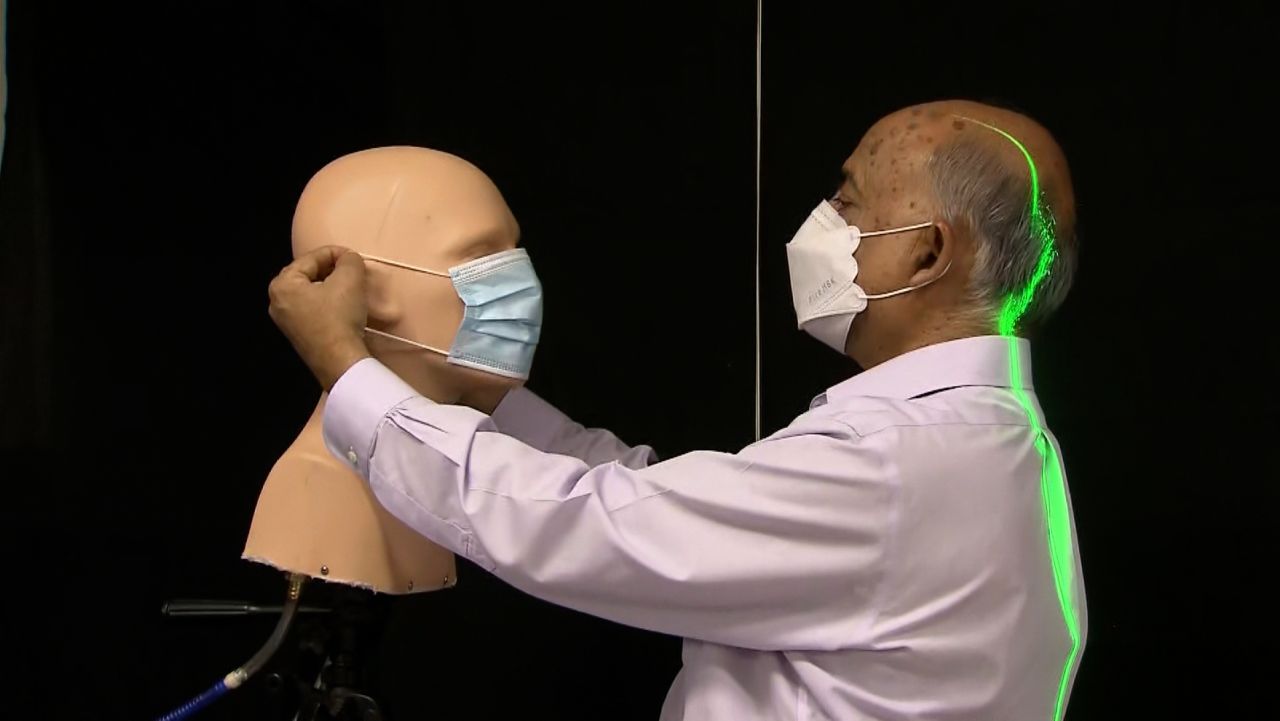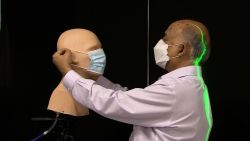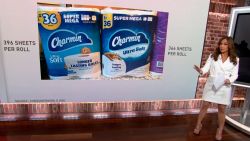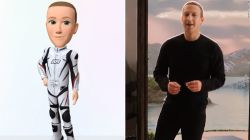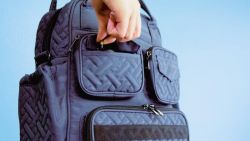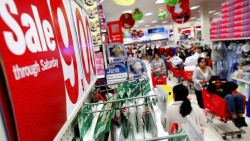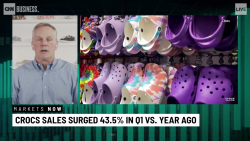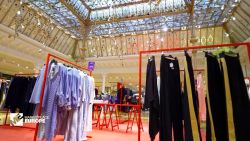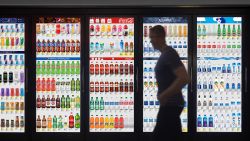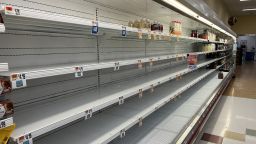N95 respirators, the gold standard of filtration masks, are back in the pandemic spotlight because of the highly contagious Omicron Covid-19 variant. Unlike earlier in the pandemic, N95s are now widely available – but the top N95 manufacturer cautioned parents who are considering buying them for their children.
3M, a leading global manufacturer of N95 masks and the largest producer of the masks in the US, said it has enough supply to meet the elevated demand due to Omicron.
“We manufacturer all of our masks for the US market in the US, in our plants in South Dakota and Nebraska,” said 3M spokeswoman Jennifer Ehrlich.
When the coronavirus outbreak reached the US two years ago it created an urgent and overwhelming demand for N95 respirator masks within the healthcare industry. This led to a shortage of N95s in the broader market and an opportunity for counterfeit masks to seep into the supply chain.
“We saw demand spike 40 times,” Ehrlich said.
During the pandemic, she said 3M more than tripled production and now has the global capacity to make over 2.5 billion respirators a year. That includes production of 100 million masks a month just in the US.
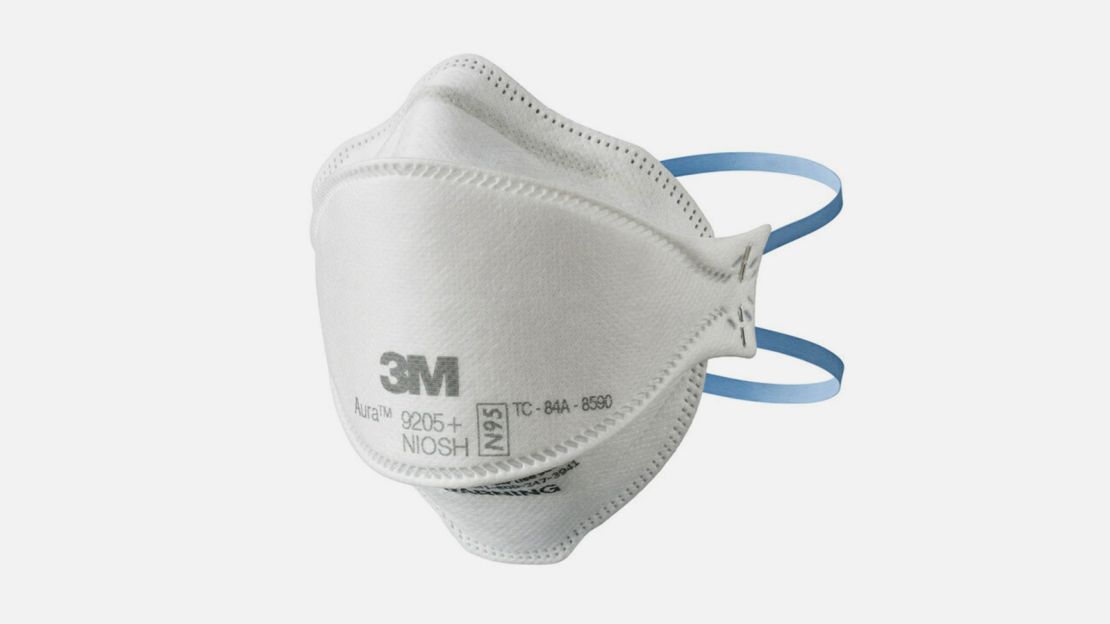
“We’ve increased N95 production enough that they are now available to all customers again and we are continuing to supply N95s needed by healthcare workers as well as industrial customers,” Ehrlich said. “There’s no longer a shortage of N95s”
Where can you buy 3M’s N95 masks?
Ehrlich said 3M’s N95 masks are for sale at all major retailers, including Home Depot, Target, Lowes, Menards and through Amazon’s 3M store. She said Target also sells a separate advanced filtering face mask from 3M that is not an N95.
A spokesperson for Amazon (AMZN) said the retailer currently has a large assortment of N95 masks. According to Amazon (AMZN), it’s selling N95 masks from domestic, international and third-party vendors that it says have met the company’s vetting and product review process.
All legitimate N95 masks bear a NIOSH marking, meaning they have been approved for use in the workplace by The National Institute for Occupational Safety and Health.
According to Target, (TGT) the retailer has a “healthy supply” of a variety of facemasks, including cloth and disposable surgical masks.
N95 masks are generally not intended for use by children.
The CDC’s guidelines state that although respirators may be available in smaller sizes, they are typically designed to be used by adults in workplaces and have not been tested for broad use by children.
“3M N95s are designed to fit adult faces,” said Dr. Nikki Vars McCullough, vice president and respiratory protection leader at 3M. “Parents who are considering a N95 for their child should make sure the respirators fits and forms a seal to the child’s face. And it’s important that the child is comfortable enough that they won’t remove it.”
The CDC also cautioned about counterfeit N95 masks. The agency said consumers should watch out for telltale signs of a counterfeit product such as misspellings on the mask, claims that the mask is approved for children and the absence of NIOSH markings.
Why N95s?
For nearly two years, we’ve become accustomed to wearing cloth face masks to protect ourselves against coronavirus.
But a few layers of fabric covering the face are proving to be no match for Omicron.
The fast-spreading variant has already triggered new record-high hospitalizations in the US, with 45,982 people currently hospitalized with Covid-19, surpassing the previous peak from January 2021, according to government data. On Wednesday, Dr. Anthony Fauci, director of the National Institute of Allergy and Infectious Diseases, said the probability is that the Omicron variant will “find just about everybody,” although vaccinated people will fare better.

Besides getting vaccinated and boosted, health experts say switching to a mask with a higher caliber of personal protection is critical to helping to mitigate the spread.
A face mask protects against the spread of Covid-19 in two ways: It mitigates the risk of the wearer’s exposure to the virus and also protects others around them from being exposed through a cough, sneeze or even just talking.
The efficacy of masks is determined by filtration, or how effectively they can block very fine particles in the air, including viruses and bacteria.
Up to this point in the pandemic, the US Centers for Disease Control & Prevention has encouraged the use of a variety of protective face masks, including well-fitted multi-layer cloth masks, disposable surgical masks and medical-grade N95 respirator masks. Properly fitted and certified, N95 masks are able to filter up to 95% of airborne particles.
However, given the extreme transmissibility of Omicron, the CDC is expected to update its mask guidance, an agency official told CNN Tuesday.

